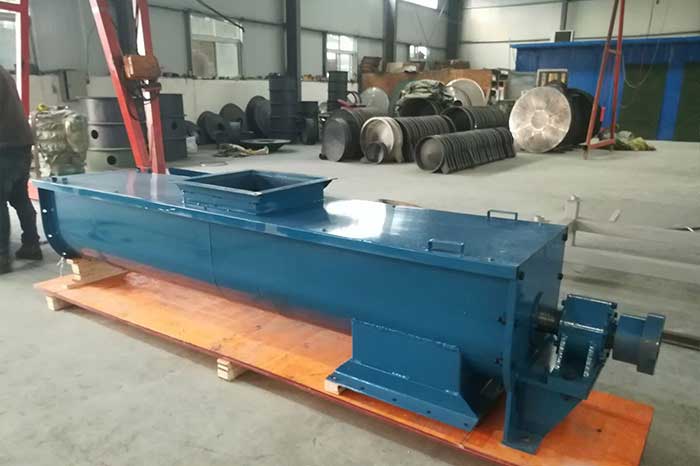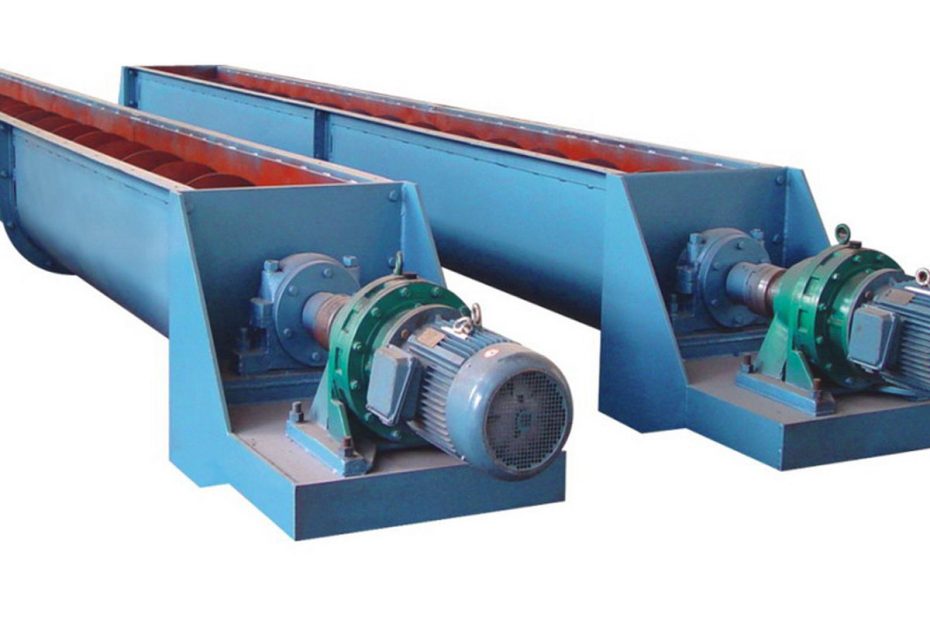Screw conveyor, commonly known as auger, is a continuous vibrating mechanical device that can convey non-sticky dry powder materials and small particle materials horizontally, obliquely or vertically.
Horizontal screw conveyor is a kind of vibrating conveying equipment that uses the motor to drive the screw to rotate and push the material to achieve the purpose of conveying. It has a stirring and mixing effect on the material and can usually convey powdery materials, granular materials or Sheet material, conveying material from one place to another.
Four main points for choosing a screw conveyor
The horizontal screw conveyor has the characteristics of simple structure, long conveying distance, good continuity, high conveying efficiency, good sealing, energy saving and environmental protection. Therefore, in industrial production, horizontal screw conveyors are widely used in various fields, such as metallurgy, mining, chemical industry, building materials, food and other industries. However, different use occasions and different material requirements also have different choices for screw conveyors, which will be introduced and analyzed in detail below.
Choose the appropriate model according to the different process requirements
- For horizontal or short-distance transportation with small inclination angle, horizontal slow speed (LSS type) screw conveyor should be selected;
- Vertical fast (LSL type) screw conveyors should be used for vertical or large inclination conveying with a small height.
- When the conveying distance is long, the (LS type) screw conveyor with large conveying capacity, high power and slow speed should be selected to ensure conveying efficiency and stability.
- For materials that are easy to clog, it is necessary to use a (GX type) screw conveyor with a simple structure and easy cleaning.
- When it is necessary to adjust the conveying speed according to the production needs, it is necessary to choose a (LSY type) screw conveyor with a frequency converter for easy adjustment.

Determine the form of the spiral blade according to the nature of the material
The characteristics of the conveyed material should be considered, such as the viscosity, temperature, humidity, particle size, shape, etc. of the material. Different material characteristics will have an impact on the selection of the conveyor.
When conveying materials with good scattering properties such as wheat and rice, full-surface blades should be selected; when conveying oily materials with high viscosity and easy bonding, belt blades should be selected in order to prevent clogging.
For materials with high viscosity or easy to agglomerate, it is necessary to choose a screw conveyor with large diameter and slow speed to prevent the material from being stuck or blocked. For materials with higher temperature, it is necessary to choose a conveyor with high temperature resistance. At the same time, materials with different particle sizes and shapes also need to choose different types of conveyors to ensure that the materials can be conveyed smoothly.
Determine the model according to the layout requirements of the process equipment
In some occasions, it is required that the screw conveyors can be arranged in parallel to meet the requirements of the parallel arrangement of the production line. LS type screw conveyor can be selected.
In some occasions, the conveyor needs to be closely connected with other equipment to ensure the coordination of the entire production line. LS-type screw conveyor can be selected, which has an interface to connect with other equipment, and can be easily connected with other equipment.
After the position of the head and tail of the screw conveyor (inlet and discharge end) is determined, the conveying direction of the material is determined, and the rotation direction of the screw blade and the shaft rotation must meet the requirements; The blades combine to form a helix.
In summary
The screw conveyor is a continuous conveying machine used for short-distance horizontal or vertical conveying of bulk materials. The equipment is classified into various categories, and suitable equipment can be selected according to different occasions and different material requirements.
However, the screw conveyor is not suitable for conveying bulky, fibrous impurities, highly abrasive, easily broken or easily bonded materials, so as not to cause blockage and material breakage.
